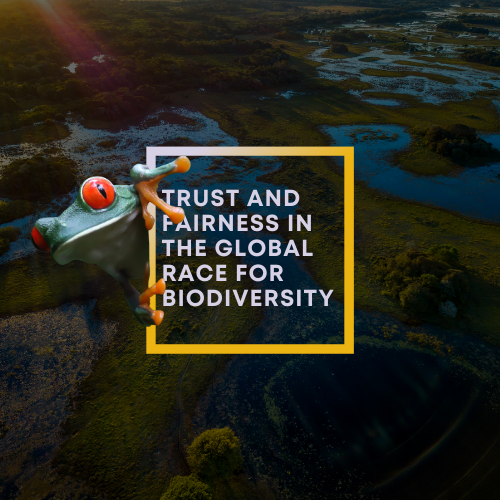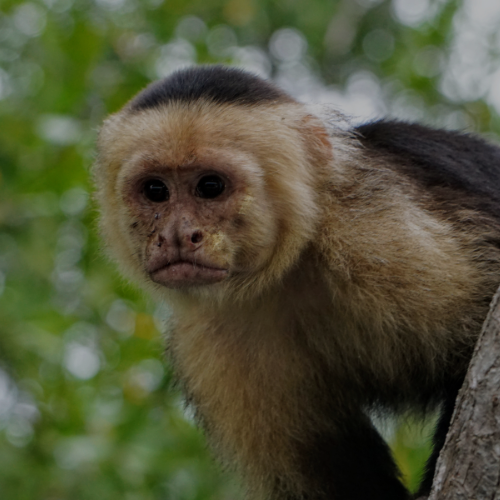By Mario Piedra, PhD. Executive Director, FUNDECOR
In a world grappling with climate change and dwindling biodiversity, the role of responsible economic mechanisms like BIOTA credits cannot be understated. As an Economist, I find BIOTA’s approach to ecosystem services as not only innovative but also deeply rooted in principles of trust and fairness. Let’s dive into the unique aspects that make BIOTA credits a reliable tool in the global race for biodiversity conservation and climate action:
- Due-Diligence Certification: One of the cornerstones of BIOTA’s approach is their FSC certification, which is in line with the FSC-PRO-30-006 V1-2 standard. This ensures that all activities and sourcing are done responsibly, thus safeguarding local ecosystems and communities. The Forest Stewardship Council (FSC) sets the bar high for environmental and social standards. Thus, the certification serves as a trust signal for both the conservation community and prospective investors.
- Solid Credit Pricing: BIOTA collaborates with academic institutions like CINPE-UNA to establish a scientifically backed pricing mechanism for biodiversity credits. This is a key move to incentivize conservation efforts. Furthermore, Ernst and Young have conducted a pricing benchmark study, providing an additional layer of credibility to the pricing model. When market rates are determined by solid scientific research and verified by reputable auditing firms, it instills a level of fairness that is crucial for long-term engagement.
- Advanced MRV Technologies: Regarding Monitoring, Reporting, and Verification (MRV), BIOTA employs advanced remote sensing technologies such as drones, satellite imaging, and GIS mapping. These technologies provide precise, real-time data, invaluable for transparent and accurate reporting. This commitment to technological rigor contributes to building trust among stakeholders.
- Citizen Science Integration: BIOTA credits go beyond traditional methods by integrating data from the Global Biodiversity Information Facility (GBIF). This involves the community in data collection, thereby enriching ecological datasets and promoting a sense of shared responsibility. Citizen science efforts further democratize the conservation process and add layer of transparency.
- Partnerships: Strategic collaboration with other reputable NGOs and organizations amplifies BIOTA’s impact and credibility. FUNDECOR with over 32 years of a proven track record in developing quality conservation projects bring invaluable expertise and outreach capabilities, adding another layer of trust in BIOTA’s initiatives.
- AMCHAM Support: The endorsement from the American Chamber of Commerce as a pioneer project in Costa Rica speaks volumes about BIOTA’s credibility. This international recognition is not just a nod to BIOTA’s innovative approach but also facilitates broader partnerships, ultimately driving global conservation efforts.
- Government Alignment: BIOTA works in close coordination with the Ministry of Environment and the National Forestry Finance Fund (FONAFIFO), adhering strictly to the governmental conservation legal frameworks. This alignment assures stakeholders that BIOTA credits are not only trustworthy but also compliant with the existing laws and regulations.
- Water Priority Indicator: Including water quality and availability as a primary indicator for land valuation shows BIOTA’s comprehensive approach to ecosystem health. Water is life’s most necessity, and its prioritization in BIOTA’s model ensures a more rounded and realistic valuation, which is fair to all stakeholders involved.
- Social Responsibility: Targeting landowners in very low-income areas, as measured by the Human Development Index, contributes to socially responsible investment. This community-focused approach guarantees that BIOTA credits are not just an elite commodity but a tool for inclusive development.
- Fair Credit Distribution: Lastly, ensuring that over 75% of the credit price goes directly to the farmers is a noteworthy aspect of BIOTA’s fairness in economic distribution. This direct financial benefit incentivizes farmers to participate in and commit to sustainable practices.
In a market where quick fixes often overshadow sustainable solutions, BIOTA’s commitment to trust and fairness is commendable. Through stringent certifications, solid pricing mechanisms, advanced technologies, and inclusive partnerships, BIOTA credits stand as a beacon of responsible and equitable conservation efforts. These credits not only foster ecological balance but also build a framework for the ethical and fair treatment of all stakeholders in the conservation ecosystem.


